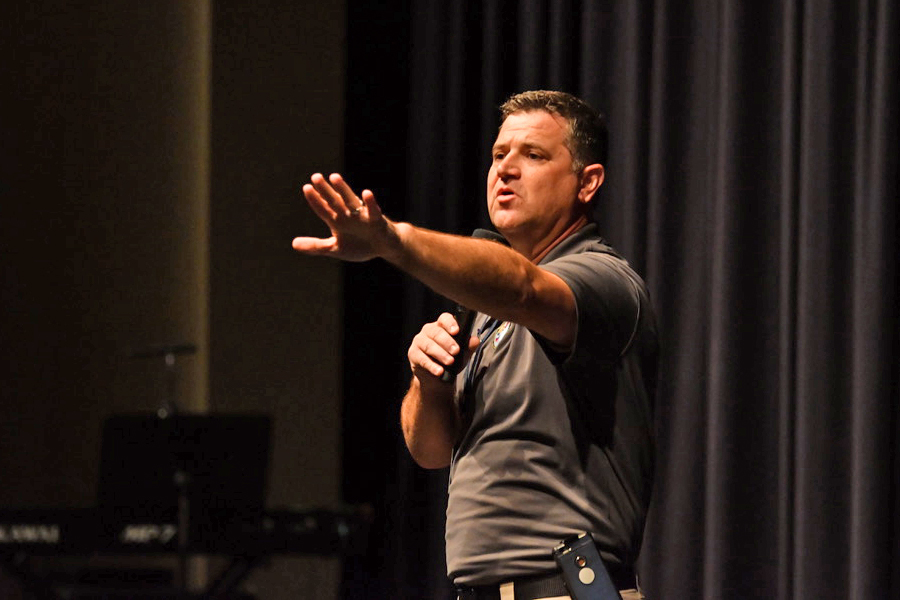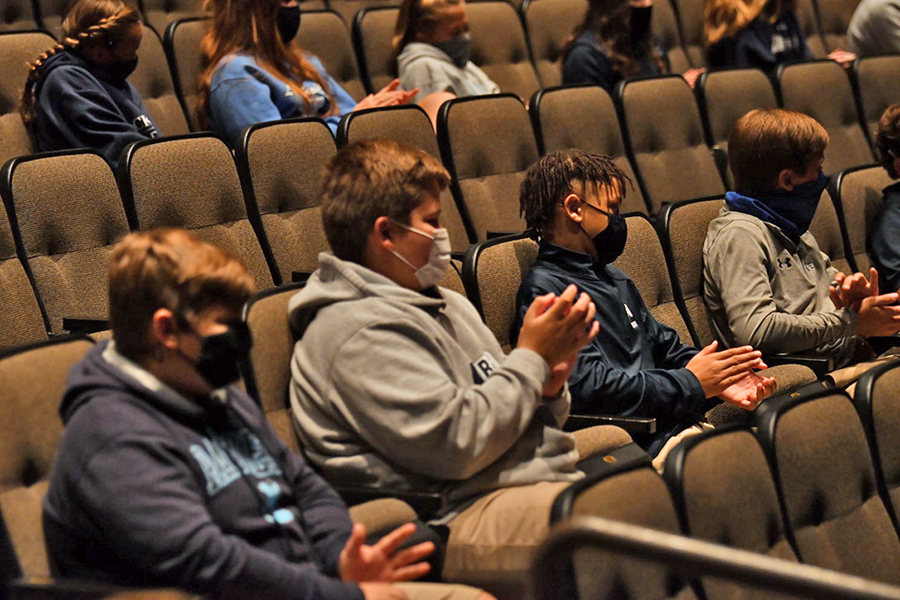

Middle School students gathered in the PAC yesterday morning to hear a presentation from guest speaker Jay Houston on online safety and cybercrime. Houston is a certified forensic computer examiner and commands the Internet Crimes Against Children unit within the Attorney General’s office of cybercrime division. He has served as an investigator for 13 years with the ICAC unit, and uses his experiences in the field to inform and encourage students.

Seventh and eighth grade students attended the first session with Houston. As Head of the Middle School J Reeves introduced Houston, he told students, “Our first job is to educate you, but we always have that fear of the things that you can get into and not realize you’re in them until it’s too late, so we want to make sure you’re safe online.” Houston spent the next 45 minutes educating students on how to stay safe online.
“Even though you are still minors, things that you do online can get you in a lot of trouble,” Houston said. “You can also get in trouble because people who look a lot like me can pretend to look like you.” Houston used anecdotes from his career to illustrate how easily online activity can disrupt a student’s life. In one case, vicious gossip shared in a group chat led to the initiator’s expulsion from her high school. In another instance, believing that someone he spoke with online was the same age as him, a young man’s life became controlled by a predator’s threats of public humiliation. After telling that story, Houston urged students to refuse to befriend strangers online, saying, “Don’t let someone have dominion and control in your life.”
The fifth and sixth graders heard a slightly different, lighter presentation from Houston. “You’re going to use these devices,” he said, holding up his cellphone, “But how do we use them in a way that doesn’t bully, cheat, or talk to strangers?” Houston warned students that apps that promise anonymity are never truly anonymous, and because of that, cyberbullies can be traced and found. Also, as virtual learning is more common today, teachers are becoming more adept at preventing or detecting cheating. Lastly, he affirmed what students hear in JA’s digital citizenship classes: stranger danger online is as real as it is in person.
The topic of internet safety can be extremely sobering. Yesterday’s presentations and JA’s digital citizenship courses help students grapple with the reality that things are not always as they seem on their screens. In closing, Houston told students, “The main thing we want y’all to learn from this is that there’s a lot of bad stuff y’all can get into, and we want you to be careful because we want you here.”

